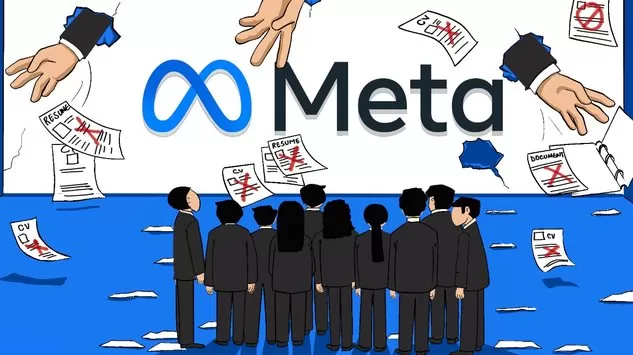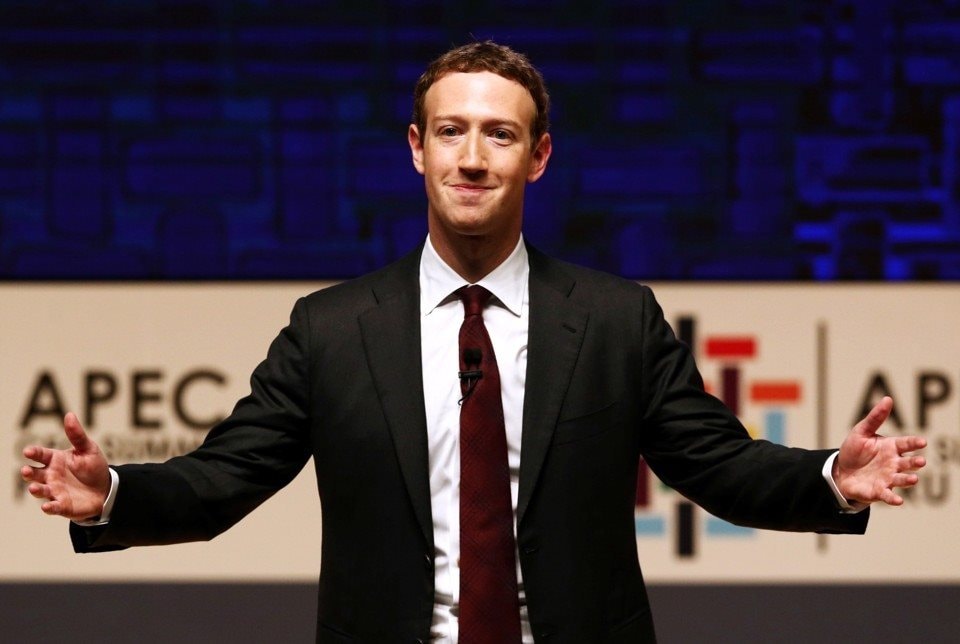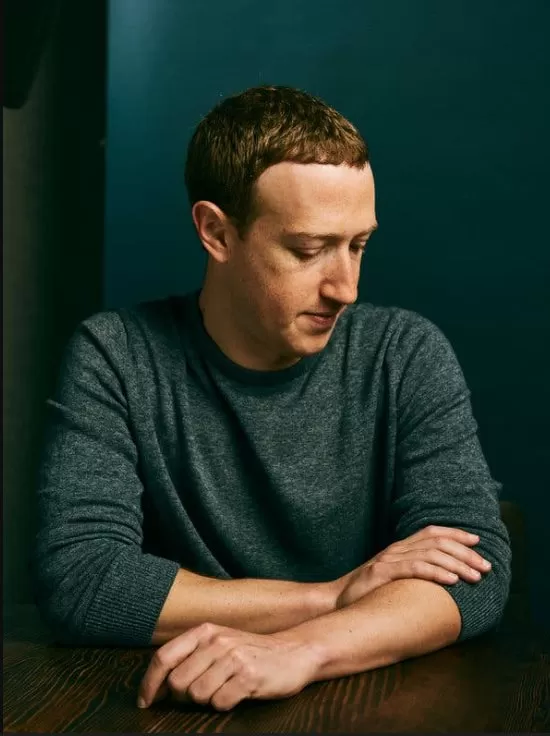Recently, Mark Zuckerberg’s decision to fire an employee for using a $25 meal allowance to purchase household items has stirred up the tech labor market.
If this had happened three years ago, Zuckerberg’s decision would have faced severe criticism from employees, as tech workers still had a voice back then. However, things have changed now.
After cutting 21,000 jobs and pushing the stock to an all-time high, Zuckerberg now holds unprecedented influence at Meta (formerly Facebook), with any decision made by the founder carrying significant weight.
This is in stark contrast to early 2022 when Meta faced difficulties as Zuckerberg’s metaverse project became a flop, resulting in mass layoffs and widespread criticism.
Mark Zuckerberg: The tyrant despised by Elon Musk and Tim Cook but supported by shareholders.
Nevertheless, the truth remains that Zuckerberg has always been criticized as a tyrant, with no close relationships with other Big Tech leaders in Silicon Valley, even when Meta is performing well.
While Mark Zuckerberg had a strong relationship with Steve Jobs, he doesn’t share the same bond with Apple’s current CEO, Tim Cook.
Tim Cook, on the other hand, frequently meets with Larry Page, co-founder of Google, but rarely engages in conversations with Zuckerberg at events or conferences.
In fact, the two have clashed directly or indirectly on several occasions. For example, in one instance, a Washington-based company funded by Facebook and other Apple competitors published anonymous articles criticizing Cook. And when Cook was asked by MSNBC in 2018 how he would handle Facebook’s privacy issues if he were in Zuckerberg’s position, he replied, “I wouldn’t be in this situation.”
Both Apple and Facebook declined to allow Cook and Zuckerberg to participate in interviews together and stated that the two men held no personal animosity.
Cook and Zuckerberg first met over a decade ago when Cook was still Apple’s “number two” and Facebook was just a startup.
At the time, Apple viewed Facebook as a barrier against Google, the search giant that had expanded into mobile software with Android, according to a former Apple executive. Around 2010, Eddy Cue, who led Apple’s digital services, reached out to Zuckerberg for a potential software partnership.
During later meetings, Zuckerberg indicated that Apple would need to offer more benefits for the partnership they were discussing, or else Facebook was prepared to go it alone. The source revealed that this attitude led some Apple executives to view Zuckerberg as overly arrogant.
Recently, Mark Zuckerberg’s decision to fire employees for using a $25 meal subsidy to buy household items has caused a stir in the tech labor market.
Three years ago, this decision by Zuckerberg would have faced severe criticism from employees when tech workers still had a voice, but now things are different.
After laying off 21,000 workers and driving Meta’s stock to an all-time high, Mark Zuckerberg holds unprecedented power at Meta (formerly Facebook), where any decision made by the founder carries significant weight.
This is in stark contrast to early 2022 when Meta faced challenges as Zuckerberg’s metaverse project flopped, leading to mass layoffs and widespread criticism.
However, one undeniable fact is that Mark Zuckerberg has always been criticized as a tyrant, with no close relationships with other Big Tech leaders in Silicon Valley, even when Meta was doing well.
The Arrogant One While Mark Zuckerberg had a good relationship with Steve Jobs, he doesn’t share such a bond with Apple’s current CEO Tim Cook.
Tim Cook frequently meets with Larry Page, co-founder of Google, but rarely engages in conversations with Zuckerberg at events or conferences.
In fact, the two have clashed directly or indirectly on several occasions. For instance, in one instance, a Washington-based company funded by Facebook and other Apple competitors published anonymous articles criticizing Cook. And when Cook was asked by MSNBC in 2018 how he would handle Facebook’s privacy issues if he were in Zuckerberg’s position, he replied, “I wouldn’t be in this situation.”
Both Apple and Facebook declined to let Cook and Zuckerberg participate in interviews together and stated that there was no personal animosity between the two.
Cook and Zuckerberg first met over a decade ago when Cook was still “number two” at Apple and Facebook was just a startup.
At that time, Apple saw Facebook as a barrier against Google, the search giant that had expanded into mobile software with Android, according to a former Apple executive. Around 2010, Eddy Cue, who led Apple’s digital services, approached Zuckerberg for a potential software partnership.
In subsequent meetings, Zuckerberg indicated that Apple needed to offer more benefits for the partnership they were discussing, or else Facebook was prepared to go it alone. The source revealed that this attitude led some Apple executives to view Zuckerberg as overly arrogant.
Then, when Apple changed its privacy policies, causing Facebook to lose $10 billion, the conflict between the two leaders reached new heights, with direct criticism aimed at one another.
But it’s not just Tim Cook; another big player, Elon Musk, also doesn’t like Mark Zuckerberg.
Over the years, Elon Musk and Mark Zuckerberg have “clashed” on everything from artificial intelligence to rockets.
When a SpaceX rocket caught fire, destroying a Facebook satellite in 2016, Zuckerberg posted a statement saying he was “deeply disappointed” by SpaceX’s mistake. And when Facebook was embroiled in the Cambridge Analytica data breach scandal, Musk publicly deleted Tesla’s and SpaceX’s Facebook pages, saying Facebook “creeps” him out.
Both Elon Musk and Mark Zuckerberg are now two of the richest billionaires on the planet, so their disputes create a unique situation, defying Silicon Valley norms. Despite the fact that both have interests in artificial intelligence and their companies have collaborated in the past, it seems Musk and Zuckerberg have never been on good terms.
After WhatsApp co-founder Brian Acton posted a tweet with the hashtag #deletefacebook: “It’s time to delete Facebook,” Musk responded immediately: “What is Facebook?”
When a fan asked Musk if he would delete SpaceX’s Facebook page, Musk replied: “I didn’t even know it existed. I’ll delete it right now.”
When another fan pointed out that Tesla also had a Facebook page, Musk said: “That’s bad.”
Shortly after, both SpaceX’s and Tesla’s Facebook pages disappeared.
Returning to the story of firing employees over a $25 meal subsidy, more and more industry experts are criticizing Mark Zuckerberg, even though the founder is driving Meta’s stock to all-time highs.
While the promise of streamlining operations is said to make the company more efficient, since Meta began its massive layoff strategy, with up to 20,000 workers laid off in 2023, the company has yet to stop.
In other words, the 20-30% annual growth Facebook once enjoyed has come to an end, and Mark Zuckerberg has yet to find a growth driver to replace it, leading to no other option but to reduce headcount and cut costs.
Meta’s story is not much different from Apple’s, as the tech giant is also struggling to find new revenue sources to replace iPhone sales after its decline. However, while Apple actively launches new products and continually improves technology instead of laying off staff, Mark Zuckerberg is doing the opposite.
While many have praised Mark Zuckerberg for Meta’s growth in 2023, a large number of experts argue that his contribution to the stock growth isn’t truly deserving. Massive layoffs are actions any CEO can undertake.
In contrast, many of Mark Zuckerberg’s initiatives, from the metaverse to AI, have not achieved the expected results. The company’s revenue still mainly comes from Facebook ads, which are under intense competition from rivals like TikTok.
While Bill Gates stepped down from Microsoft to allow CEO Satya Nadella to focus on cloud computing, which eventually led to the success of ChatGPT, and Apple post-Steve Jobs, under CEO Tim Cook, saw explosive growth through the iPhone ecosystem, Facebook has hardly introduced anything new since its inception.
Despite some changes in features and interface, Mark Zuckerberg himself has admitted that younger generations today increasingly prefer TikTok. This is in addition to issues like fake news, the spread of misleading or harmful information, and content copyright violations.
Despite these challenges, Mark Zuckerberg will continue to hold his position as CEO with his billion-dollar projects like the metaverse and AI, as long as the stock price keeps rising and shareholders are satisfied.






